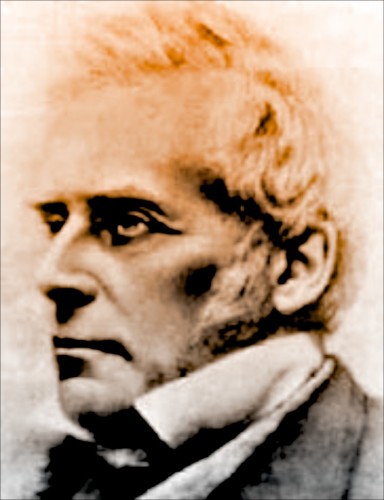31What shall we then say to these things? If God be for us, who can be against us? 32He that spared not his own Son, but delivered him up for us all, how shall he not with him also freely give us all things? 33Who shall lay any thing to the charge of God’s elect? It is God that justifieth. 34Who is he that condemneth? It is Christ that died, yea rather, that is risen again, who is even at the right hand of God, who also maketh intercession for us.
35Who shall separate us from the love of Christ? shall tribulation, or distress, or persecution, or famine, or nakedness, or peril, or sword? 36As it is written, For thy sake we are killed all the day long; we are accounted as sheep for the slaughter.
37Nay, in all these things we are more than conquerors through him that loved us. 38For I am persuaded, that neither death, nor life, nor angels, nor principalities, nor powers, nor things present, nor things to come, 39Nor height, nor depth, nor any other creature, shall be able to separate us from the love of God, which is in Christ Jesus our Lord.
 In the end of Romans 8, Paul sums up the exercises of our hearts, and the work of grace. We are brought to realise that, in spite of the conditions in the world, and in ourselves, he shows how God is for us. Indeed God had seen all these tests before we even existed.
In the end of Romans 8, Paul sums up the exercises of our hearts, and the work of grace. We are brought to realise that, in spite of the conditions in the world, and in ourselves, he shows how God is for us. Indeed God had seen all these tests before we even existed.
Earlier in the chapter, we are told that ‘the carnal mind is enmity against God: for it is not subject to the law of God, neither indeed can be’ (v. 7). But God has given His own blessed Son. We are to enjoy full liberty with God, knowing Him as the Giver. The prodigal thought the status of a humble hired servant would be more in keeping with his failure, but the father had other things in mind. The more we have a conviction of sin, the greater we appreciate God’s giving. Conversely the more we know God, the more we see the evil in sin, and the more we glory in Him, and what our Lord has done.
The accuser is Satan. ‘It is Christ that died, yea rather, that is risen again, who is even at the right hand of God, who also maketh intercession for us’ (v. 34). We are told that nothing shall separate us from the love of Christ. Why the love of Christ, not the love of God? It is the love of God in Christ. He was down here suffering in the difficulties, and now He is at the right hand of God.
So, about the difficulties:
- Principalities and powers? Christ was tempted by these, and overcame them for me: they are not going to stop me.
- Life? He went through that too. He had plenty of sorrow in it; and I grow through all the sorrow that I might have. The trials of life cannot separate me from Christ – “to me to live is Christ’ (Phil 1:21).
- Death? This cannot separate me either. Indeed, it will bring me to Him: ‘to die is gain’ (Phil 1:21).
- Persecutions? I triumph in them, because Christ is with me in them.
When the children of Israel were in Egypt, they witnessed the judgment. Then God brought them out via the Red Sea – redemption. He looked after them in the wilderness, giving them the manna (but they had to collect it diligently). The real conflict began when they reached the land. Then the Lord presented Himself to Joshua as captain of the Lord’s host (Jos 5:15). He was with them.
God has brought us to Himself. We are called to fellowship with God, and fellowship means common happiness, common thoughts and common feelings. The Father’s delight is in His Son; and we have fellowship with Him in that. Christ’s delight is in the Father; and we have fellowship with Him in that. So our fellowship is with the Father and with His Son Christ Jesus (see 1 John 1:3). ‘If we say that we have fellowship with him, and walk in darkness, we lie, and do not the truth: But if we walk in the light, as he is in the light, we have fellowship one with another, and the blood of Jesus Christ his Son cleanseth us from all sin’ (1 John 1:6-7).
The psalmist asked God to search him (see Ps 139:23) – not to condemn or impute, but to cleanse. Christ has gone through all the difficulties, and now He is suiting me for the place where He is. May we know perfect redemption, and be consciously in fellowship with the Father and the Son, so that everything contrary to His holiness may be judged and put away.
Based on the notes of a lecture by John Nelson Darby entitled, ‘God for us’ It is published in Collected Writings Volume 12 (Evangelical 1) page 165.
Sosthenes
February 2017
